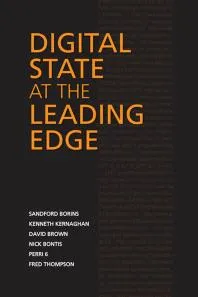Leading Protests In The Digital Age: Youth Activism In Egypt And Syria
4.7
Reviews from our users

You Can Ask your questions from this book's AI after Login
Each download or ask from book AI costs 2 points. To earn more free points, please visit the Points Guide Page and complete some valuable actions.Related Refrences:
Introduction to "Leading Protests in the Digital Age: Youth Activism in Egypt and Syria"
"Leading Protests in the Digital Age: Youth Activism in Egypt and Syria" is a compelling exploration of how young activists in two pivotal Middle Eastern nations harnessed technology to challenge oppressive regimes and mobilize large segments of society. This book offers a comprehensive analysis of the intersection between technology, youth movements, and socio-political change, shedding light on the transformative power of digital platforms during the Arab Spring and beyond.
In today’s rapidly evolving digital landscape, where social media platforms often serve as megaphones for dissent, this book serves as an invaluable resource for understanding the dynamics of digital activism. It specifically examines the role young leaders played in coordinating and amplifying revolutionary movements in Egypt and Syria, illustrating both the potential and limitations of technology as a tool for societal transformation. With rich, in-depth narratives, case studies, and interviews, "Leading Protests in the Digital Age" provides readers with a nuanced understanding of how youth-driven protests unfolded amidst political turmoil and repression.
This book is not merely a recounting of events; it serves as a guide for understanding the broader implications of digital activism, offering lessons for activists, policymakers, and scholars alike. By focusing on the stories from Egypt and Syria, I aim to bridge the gap between theoretical concepts of protest and the gritty, on-the-ground realities faced by young people fighting for change.
Detailed Summary of the Book
This book is divided into several thematic sections, each delving deeply into key aspects of youth activism and its digital dimensions. It begins with an overview of the political environments in Egypt and Syria prior to the Arab Spring, highlighting the systemic oppression and stifling of free expression that characterized these regimes.
The narrative then shifts to the transformative role of digital tools during the uprisings. Platforms like Facebook, Twitter, and YouTube became vital arenas for organizing protests, raising awareness, and sharing uncensored information with the world. These platforms enabled young activists to bypass traditional state-controlled media, directly challenging authoritarian narratives.
Through vivid accounts and interviews, the book captures the strategies and tactics employed by youth leaders. For instance, it analyzes how Egyptian activists used viral hashtags to galvanize national movements, while Syrian activists relied on encrypted messaging to coordinate resistance in a war-torn environment. Despite the differences in their contexts, both groups demonstrated remarkable ingenuity and resilience in the face of overwhelming odds.
The book also addresses the challenges faced by these movements, including government surveillance, internet shutdowns, and the eventual fragmentation of protests. While digital tools facilitated explosive moments of mass mobilization, they also exposed activists to new risks, leading to arrests, smear campaigns, or worse.
Concluding with reflections on the aftermath of the Arab Spring, the book debates whether digital activism can sustain long-term societal transformation, offering readers a balanced perspective on its advantages and limitations.
Key Takeaways
- Social media is not just a tool for communication but also a powerful weapon for mobilization and narrative control in oppressed societies.
- Youth activism embodies innovation and adaptability, evident in how young leaders in Egypt and Syria leveraged digital platforms despite formidable challenges.
- The digital age has reshaped the dynamics of protests, making them more decentralized yet simultaneously more vulnerable to surveillance and manipulation.
- Understanding the stories of individual activists enriches our knowledge of collective movements and highlights the sacrifices made for freedom.
- Long-term change requires a combination of digital and offline efforts, as online activism alone is insufficient for enduring systemic transformation.
Famous Quotes from the Book
"In the digital age, the keyboard has become mightier than the sword, but only in the hands of those bold enough to wield it for justice."
"Social media platforms are double-edged swords—they empower the oppressed but also expose them to unprecedented levels of surveillance."
"The courage of youth, amplified by the connectivity of digital tools, has the power to shake the foundations of even the most entrenched regimes."
Why This Book Matters
"Leading Protests in the Digital Age" is more than a historical account—it is a call to action and a reflective guide for understanding the interplay between technology, youth, and societal change. As authoritarian regimes worldwide adapt to the digital era, it becomes crucial to study the tactics, triumphs, and failures of past movements to chart sustainable paths for future activism.
This book matters because it captures the humanity behind the hashtags, bringing forward the voices of young individuals who dared to dream of a better world. It serves as a timeless reminder that change is often borne out of the courage of ordinary people armed with extraordinary determination.
Free Direct Download
You Can Download this book after Login
Accessing books through legal platforms and public libraries not only supports the rights of authors and publishers but also contributes to the sustainability of reading culture. Before downloading, please take a moment to consider these options.
Find this book on other platforms:
WorldCat helps you find books in libraries worldwide.
See ratings, reviews, and discussions on Goodreads.
Find and buy rare or used books on AbeBooks.
1485
بازدید4.7
امتیاز0
نظر98%
رضایتReviews:
4.7
Based on 0 users review
Questions & Answers
Ask questions about this book or help others by answering
No questions yet. Be the first to ask!










![The Ultimate iOS Interview Playbook: Conquer Swift, frameworks, design patterns, and app architecture [Team-IRA]](https://s3.refhub.ir/images/thumb/The_Ultimate_iOS_Interview_Playbook__Conquer__29925.webp)





![Building Data Science Applications with FastAPI: Develop, manage, and deploy efficient machine learning applications with Python [Team-IRA]](https://s3.refhub.ir/images/thumb/Building_Data_Science_Applications_with_FastA_31328.webp)




















